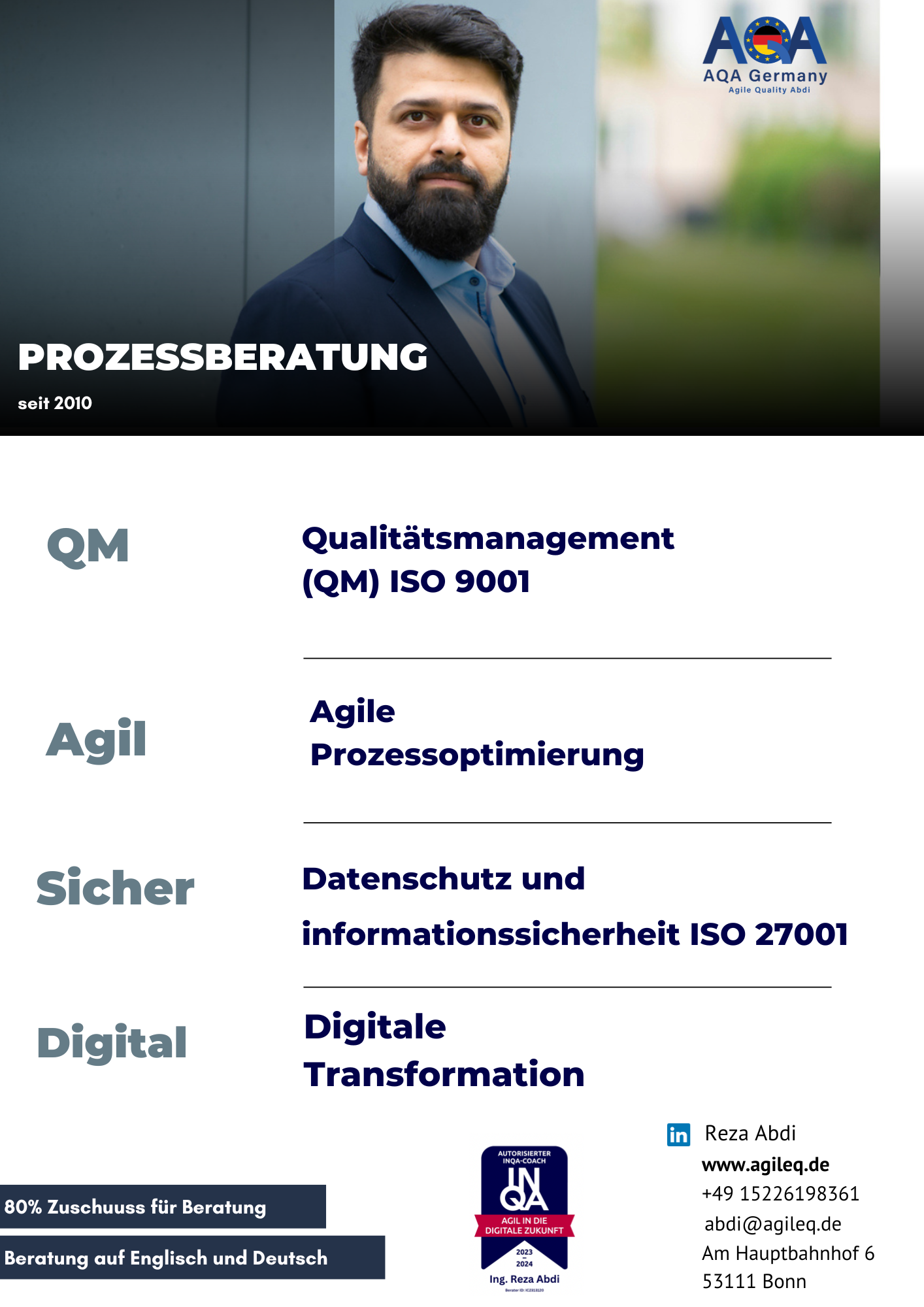Introduction
In today's fast-paced and ever-changing healthcare industry, medical practices rely on effective quality management strategies to ensure the best possible care for their patients. Adopting an agile mindset can help address these challenges. This article discusses the importance of an agile mindset in the quality management of medical practices and how this approach can help improve the quality of care.
I. Understanding the agile mindset
The agile mindset is an approach that originated in software development but has been successfully applied in various industries, including healthcare. It is characterized by principles such as customer focus, collaboration, flexibility and continuous improvement. In terms of quality management in medical practices, this means
Customer focus: the agile mindset emphasizes the importance of patient satisfaction. Doctors and the medical practice team should focus on the needs and expectations of patients to ensure high-quality care. Collaboration: Agile teams promote collaboration between doctors, nurses, administration and other stakeholders. By sharing information and ideas, problems can be solved faster and better solutions can be found. Flexibility: Medical practices should be able to respond flexibly to changes in patient demand, regulatory requirements and technology. An agile mindset makes it possible to adapt quickly and respond to new challenges.
II Application of the agile mindset in quality management
Continuous improvement: The agile mindset focuses on continuous improvement. Medical practices can set up regular feedback loops from patients to evaluate and adapt their services. Sprint planning: Similar to software development, medical practice teams can plan short, intensive work cycles or "sprints" to achieve specific quality goals. This allows for better control and quick adjustments. Prioritization: Physicians and medical practice teams should be able to focus their resources on the areas that have the greatest impact on patient care. Agile methods such as MoSCoW prioritization can help with this. III Challenges in the introduction of an agile mindset
Introducing an agile mindset to quality management in medical practices can encounter challenges, including
Cultural change: shifting to an agile mindset may require a cultural change in the practice that takes time and commitment.
Training and resources: Physicians and staff may need to be trained to understand and apply agile methods.
Resistance to change: Some staff may resist changes to the way they work, making implementation more difficult.
 IV. Financial support for coaching
IV. Financial support for coaching
It is encouraging to learn that physicians have the opportunity to benefit from coaching services supported by a generous 80% grant. This financial support offers physicians the opportunity to utilize your coaching and agile mindset approach to quality management without excessive financial burden. This additional funding can incentivize physicians to take advantage of your coaching to further improve the quality of their patient care. It's a win-win situation for everyone involved, as better patient care should be the main goal.
 Conclusion
Conclusion
The agile mindset offers physicians and their medical practice teams the opportunity to continuously improve the quality of patient care. By emphasizing customer focus, collaboration and flexibility. Medical practices can respond more effectively to the needs of their patients while meeting the demands of a changing healthcare industry. Adopting an agile mindset requires effort but can provide long-term benefits to quality of care and patient satisfaction, supported by financial assistance for coaching services.
